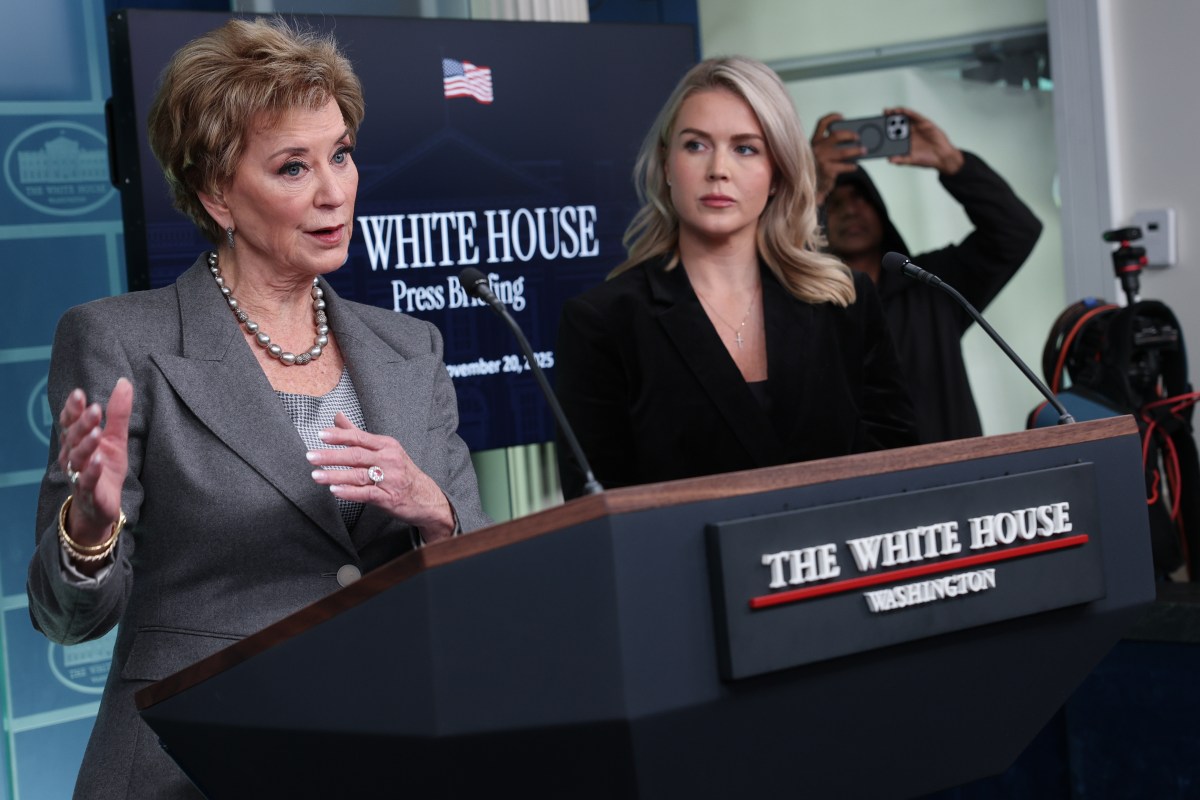Secretary of Education Linda McMahon has explained some of the new changes under the Department of Education that will impact millions of student loan borrowers. In a new interview with Breitbart, McMahon said the department was undergoing changes and students and parents must look at the “return on investment” on higher education. Why It Matters President Donald Trump’s fiscal plan has called for many changes for student loan borrowers under the DOE. For one, undergraduate loans are capped, and the GRAD PLUS program has been eliminated. There’s also a new Repayment Assistance Plan, but only students pursuing a “professional” degree can borrow up to $50,000 per year. What To Know During an interview on the Alex Marlow show, McMahon spoke about the major changes at the Department of Education after Trump ultimately ordered to dismantle the agency. “I think we have to look broadly over the whole education experience, the higher education experience, and what these student loans are going for, and I think that’s one of the things that President tried to correct in the ‘Big, Beautiful Bill.’ He kept loans, [and] he took away some of the loans that had been accessible,” McMahon said. “When you think about the fact that a university could just simply say, this is how much it costs to come and get this program, and then a student could borrow that amount, what incentive is there for colleges and universities then to reduce their cost? What is the opposite incentive? It is to raise their costs. And so we have had to stop that and put some caps on that,” she added. While the Department’s capping of student loan costs are said to help correct this problem, McMahon also urged students and parents to look at alternative options than just a traditional four year university. She said: “I don’t think everyone needs a four-year college education. We have to change that thinking because today we have many jobs that are available for our skilled workforce about 700, 000 openings in skilled workforce. Students can go right into those kinds of programs with community colleges or trade schools and get into the economy and start making money for themselves.” McMahon has clarified that she’s still a proponent of many college students who do find success with a higher education. “Please don’t misunderstand: I’m very happy for people to go to college and those who can go to college, and there are some of our careers that really require that if you’re going to be a doctor, you’re going to be a lawyer, all of that,” McMahon said. “But, you can really have a great life and do something that you thoroughly enjoy and not have to spend four years in college.” Instead, McMahon said she wants both students and parents to understand their ROI before taking on student loan debt. “We want to make sure students understand [what their] ROI is on going to college, and parents have to look at that. Parents have to look at, okay, what is this university going to cost for me to send my child there. This is the career that they’re looking for. This is the degree that they’re getting. What will that degree deliver for them? What is the average return on investment? Can they make enough money so that they’re not going into their years in social security repaying their loans?” McMahon said. Last week, the Department announced six new interagency agreements (IAAs) with four agencies to “break up the federal education bureaucracy, ensure efficient delivery of funded programs, activities, and move closer to fulfilling the President’s promise to return education to the states,” according to a press release. “The Trump Administration is taking bold action to break up the federal education bureaucracy and return education to the states,” McMahon said previously in a statement. “Cutting through layers of red tape in Washington is one essential piece of our final mission. As we partner with these agencies to improve federal programs, we will continue to gather best practices in each state through our 50-state tour, empower local leaders in K-12 education, restore excellence to higher education, and work with Congress to codify these reforms. Many have been critical of McMahon and the Trump administration’s larger actions within the Department of Education. “For me, the change she’s overseen has brought mostly confusion from system overhauls and portal access issues to the messy restart of loan payments,” Kevin Thompson, the CEO of 9i Capital Group and the host of the 9innings podcast, told Newsweek. “Many borrowers still don’t know whether they’re required to make payments or if they qualify for relief.” The discussion on ROI for college students is an important one, said Alex Beene, a financial literacy instructor for the University of Tennessee at Martin. But overall college affordability still has many challenges. “There’s no denying that borrowers should consider their professional futures and loan repayment plans before taking on an amount of student debt that may prove unsustainable,” Beene told Newsweek. “At the same point, the question of ‘How do we make college more affordable?’ remains an elusive one for many to answer.” What People Are Saying Secretary of Education Linda McMahon said in the Breitbart interview: “When you think about the fact that a university could just simply say, this is how much it costs to come and get this program, and then a student could borrow that amount, what incentive is there for colleges and universities then to reduce their cost? What is the opposite incentive? It is to raise their costs. And so we have had to stop that and put some caps on that.” Kevin Thompson, the CEO of 9i Capital Group and the host of the 9innings podcast, told Newsweek: “I think she’s right that colleges are incentivized to keep raising prices as long as the government continues to hand out loans. In this case, more access to loans increases demand for education, which drives up prices. That’s not dysfunction; that’s economics working as designed.” “Where I think she misses the mark is in dismissing degrees like social work. Social work is a cornerstone of our society these professionals hold communities together. The problem isn’t that the field has ‘no ROI’; it’s that our system undervalues essential human services. Some jobs won’t ever pay well, but that doesn’t make them any less necessary.” Alex Beene, a financial literacy instructor for the University of Tennessee at Martin, told Newsweek: “Student loans have faced increased scrutiny over the last two decades, as balance amounts have ballooned for many borrowers as the cost of attendance for colleges nationwide have escalated. Under the current administration, a major pivot has occurred that now focuses more on addressing the problem at the front-end of the process. Degree reclassification and a repayment assistance plan are the efforts to limit loan amounts for new borrowers and assist current loan holders.” What Happens Next Thompson said the current DOE changes could lead to a decrease in student loans and an increased interest in trades instead. “If this continues, student loans will decline, and people may flock to trade schools,” Thompson added. “Skilled tradespeople will increase as well as craftsmen. I feel like I have read this in someone’s ‘Manifesto’ before, but let’s hope they were wrong.”.
https://www.newsweek.com/student-loan-update-changes-explained-linda-mcmahon-11099772
Student Loan Update: Changes Impacting Millions Explained by Trump Official



